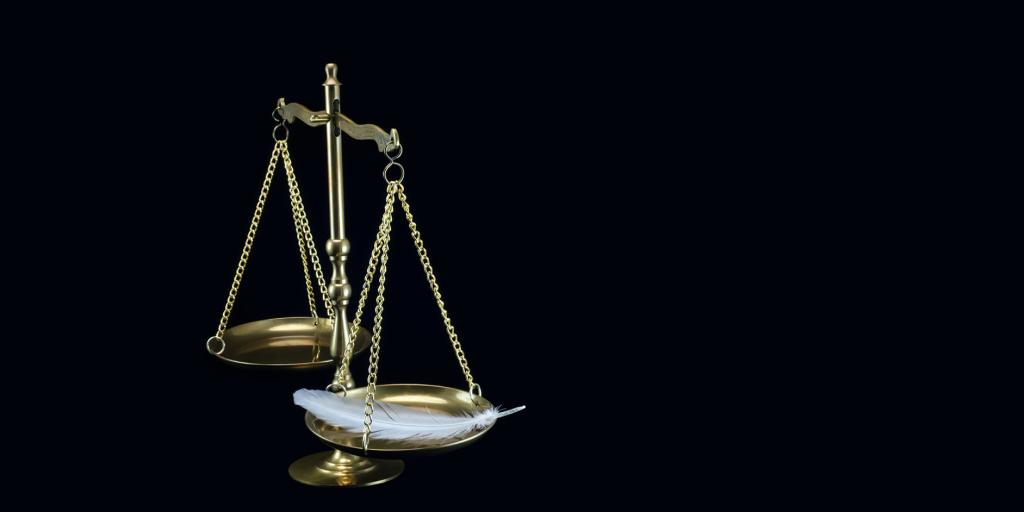
A Two-Tiered Justice System?
Many have heard allegations in the news that a two-tiered justice system exists in our nation. Should some get preferential treatment over others? What does God say about justice?
Justice means being treated impartially and fairly by the arbiters of the law, and it is supposed to be “blind”—i.e., not favoring anyone for any reason. Whether rich or poor, male or female, or of any particular race, ethnic group, or religion, justice should be the same for all. A common symbol of justice is a female figure wearing a blindfold, holding a scale in one hand and a sword in the other. The blindfold symbolizes impartiality, the scale stands for weighing the facts accurately, and the sword represents the power to administer determined judgments.
Since ancient times, mankind has observed that the wealthy or connected receive favored treatment—perhaps a reduced penalty or sentence described as “a slap on the wrist”—while the “common man” often receives the full brunt of the law. Injustices are not uncommon, with the innocent sometimes being punished and the guilty sometimes going free. It has been recognized that lack of money can be a deciding factor in the courtroom. Prosecutors and defense attorneys do not always pursue or share all of the facts, though both should pursue the truth.
The great patriarch Abraham was noted by God as doing “justice and judgment” (Genesis 18:19, King James Version). The Hebrew word for justice denotes correctness, virtue, and righteousness. David is also noted as administering “judgment and justice to all his people” (2 Samuel 8:15). In Psalm 103, he praises the Lord’s execution of “righteousness and justice for all who are oppressed” (v. 6), and he states in Psalm 140:12 that “the Lord will maintain the cause of the afflicted, and justice for the poor.”
The prophet Amos decried the evils in Israel, including trampling the poor with taxes, “afflicting the just,” taking bribes, and “diverting the poor from justice at the gate” (Amos 5:10–12). He warned them to establish justice so that the Lord could be gracious (vv. 15, 24). It is easy to see that such problems are in full force today. Isaiah 59 speaks of a time when “[n]o one calls for justice, nor does any plead for truth,” when “justice is far from us” and “is turned back” (vv. 4, 9, 14). “Then the Lord saw it, and it displeased Him that there was no justice” (v. 15).
God warned Israel not to pervert justice by showing favoritism or taking a bribe (Deuteronomy 16:19). God protected the vulnerable and pronounced a curse on anyone who perverted their justice (Deuteronomy 27:19). Isaiah said, “Woe to those who decree unrighteous decrees, who write misfortune, which they have prescribed to rob the needy of justice, and to take what is right from the poor of My people, that the widows may be their prey, and that they may rob the fatherless” (Isaiah 10:1–2).
The prophet Habakkuk foresaw the violence, iniquity, and contention and that “justice never goes forth. For the wicked surround the righteous; therefore perverse judgment proceeds” (1:4). Today, we see perpetrators of crime going free, those who stand for righteous causes attacked, and perverse judgments made.
The prophet Micah gives a stern warning to the leaders of Israel who “abhor justice” and “judge for a bribe” (Micah 3:9, 11). Micah foretold of the establishment of the Lord’s government (Micah 4:1–5), the coming time when Christ will return to this earth to establish His kingdom and rule “with judgment and justice from that time forward, even forever” (Isaiah 9:7). True and righteous judgment will be administered from that time on.
For more on this topic, see our Tomorrow’s World magazine article “Lies, Lies and More Lies,” and News and Prophecy articles about “Perverting Justice” and “Upside-Down Justice.”
Stay up to date with our Weekly Digest Email!
Tomorrow's World ComMentary Podcast
Subscribe to Tomorrow's World Commentary podcasts on iTunes and Google Play!



